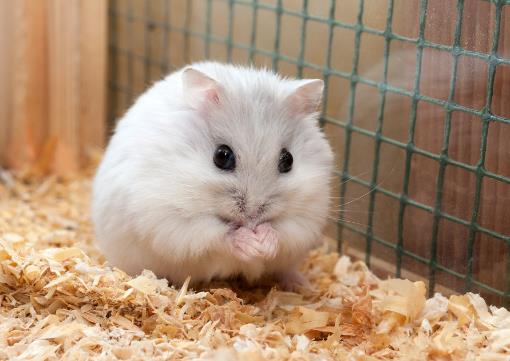1. Diet Management
Choice of Staple Food: The staple food for hamsters should be specialized hamster food, which includes grains, seeds, etc., to ensure a balanced diet.
Snack Feeding: You can give an appropriate amount of fruits and vegetables such as carrots and apple slices, but they need to be washed and dried. Feed them 2 to 3 times a week, and avoid overfeeding.

Drinking Water Safety: Provide purified water or cooled boiled water to avoid harmful substances in tap water.
2. Living Environment
Cage Arrangement: The cage needs to be spacious and equipped with a running wheel, a food bowl, a water bottle, a small nest, etc., to ensure that the hamster has enough space to move around.
Bedding Selection: Use wood shavings or paper cotton as bedding, and change it regularly to keep it clean and dry.
Temperature Control: The suitable temperature is between 20°C and 28°C. Avoid direct sunlight and the direct blowing of air conditioners.
3. Daily Care
Cage Cleaning: Clean up food residues and feces every day, and conduct a thorough cleaning once a week to prevent the growth of bacteria.
Bathing Method: Hamsters are not suitable for being washed with water. You can use bathing sand to clean them to keep their fur healthy.
Health Observation: Regularly check the hamster's activity level, appetite, and excreta, and deal with any abnormalities in a timely manner.
4. Interaction and Training
Building Trust: Interact with the hamster through petting, feeding, etc., and avoid scaring it suddenly.
Moderate Training: You can teach the hamster simple actions, such as standing on your hand, but avoid overtraining.
5. Precautions
Forbidden to Feed Human Food: Foods high in salt and sugar will increase the physical burden on the hamster.
Avoid Group Housing: Except for Roborovski hamsters, other breeds should be kept separately to prevent fighting.
Breeding Control: If you are not prepared, avoid putting male and female hamsters in the same cage to prevent overbreeding.
Conclusion: Feeding hamsters requires carefulness and patience. Scientific management is needed in terms of diet, environment, and daily care to ensure that hamsters live a healthy and happy life.
